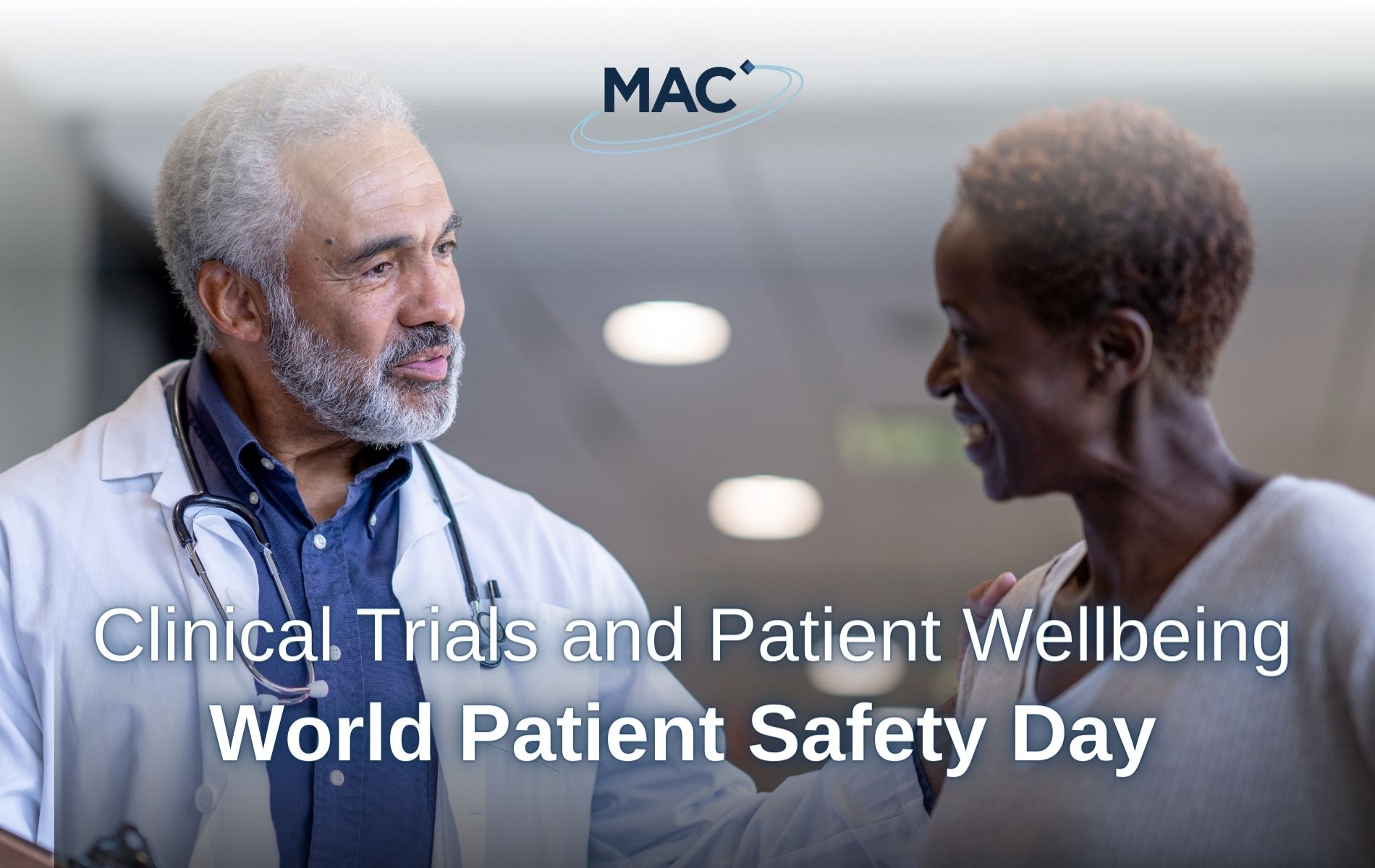Today on World Patient Safety Day, we honour and emphasise the critical role that patient wellbeing plays in the realm of clinical research. Clinical trials are essential for advancing medical science and bringing new treatments to the forefront, but they must always prioritise the safety and wellbeing of the participants.
Did you know, between April 2022 and March 2023, almost one million people took part in clinical research across England according to an NIHR report. They reported that in this time, over 100 people in England were enrolled every hour to take part in health and care research. That’s enough people to fill Wembley Stadium over 10 and a half times1.
The theme of this year’s World Patient Safety Day, organised by the World Health Organisation (WHO), is “engaging patients for patient safety”. This year, the organisation aims to influence everyone involved in the healthcare process to co-design healthcare policies and safety interventions that truly reflect the needs and preferences of patients, ultimately enhancing healthcare safety globally2.
Every single clinical trial conducted is highly regulated to ensure that patient safety is paramount. Clinical trials involve testing new medications, devices, procedures, or interventions, and patients place their trust in medical professionals and researchers to ensure their welfare throughout the process. It’s not only a moral duty but also a legal and professional obligation to uphold the highest standards of patient safety.
Before anyone can enrol in medical research, a clinical trial is reviewed and approved by a medical regulatory authority and an independent ethics committee, which plays a vital role in safeguarding patient wellbeing. These bodies check the documents required for submission and any medical procedures that may be used prior to any study being approved. This review process is extensive and is there to ensure the safety and rights of patients is foremost.
Here in the UK, all clinical trials are reviewed by the Medicines and Healthcare products Regulatory Agency (MHRA). This government body, along with The Health Research Authority (HRA), work to protect and promote the interests of patients and the public in health research. Between 2021 and 2022, the HRA reviewed over 4200 applications for research ethics committees and approvals for clinical research3.
One of the key components of clinical trials is informed consent. Clinical trial participants must receive comprehensive information about the trial, its potential risks, benefits, and the procedures involved, this is usually provided by the medic with overall responsibility for the trial at the clinic, known as the principal investigator, or one of their team. This empowers patients to make well-informed decisions about their participation, ensuring that they understand the implications and potential outcomes.
Before a patient is enrolled in a clinical trial at MAC, rigorous processes, known as pre-screening and screening are conducted to ensure their eligibility and safety. Patients must meet exact requirements, known as inclusion and exclusion criteria, to be considered eligible for a trial. These can include being within a certain age-range, BMI range, current or prior medical conditions and dietary restrictions. This usually means that the study doctor will fully review each participants’ medical history. Additionally, continuous monitoring is essential throughout the trial to promptly identify any adverse reactions and make necessary adjustments, and if necessary, withdraw participants.
Adopting a patient-centric approach is vital in clinical trial design and implementation. Patient input helps researchers understand the real-world impact of the trial on participants’ lives. This approach can lead to better trial designs, improved patient experiences, contributing to the overall safety and improved outcomes for trials.
Open and transparent communication between researchers, healthcare professionals, and patients is essential to foster trust throughout the clinical trial process. Patients should feel comfortable asking questions, reporting concerns, and understanding every aspect of the trial. Trust is crucial for maintaining patients’ wellbeing and ensuring their safety.
Here at MAC Clinical Research, our friendly, welcoming team are committed to fostering an environment for patients to feel comfortable and safe when taking part in a clinical trial at our clinics.
When you take part in a clinical trial with MAC, not only will you receive utmost care from our specialist teams, you’ll also receive a full comprehensive health check-up, which may include an ECG, blood pressure and blood tests.
If you are interested in taking part in a clinical trial at MAC, find out if there’s one suitable via our current trials webpage.
Depending on the trial, you may receive financial reimbursement for taking part. Reasonable travel expenses or transportation for clinic visits is also provided.
1 NIHR – Annual Statistics 2022/23
2 World Health Organisation – World Patient Safety Day
3 NHS Health Research Authority – Annual Report and Accounts 2021/22






